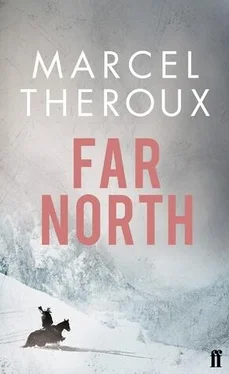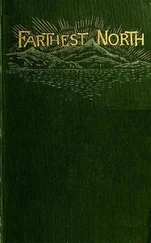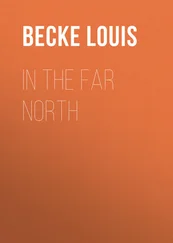I boiled up some herbs in a bucket for him to breathe them in. That seemed to help him, and he slept easier that night.
At first light I was up to gather more plants. I found a bunch of them. And while I was doing it, I caught sight of a deer. I had my gun with me, and I thought, to hell with it: either the sickness will get us, or Tolya’s men will get us, but at least this way we won’t die hungry.
I was pretty dizzy with fever myself, and it took me three shots to put her down and half an hour to drag her back to our camp.
She was a young female who must have got separated from her herd.
Shamsudin was sitting up, but groggy, and I shouted out that we had fresh meat.
It struck me that it would do him good to eat the liver so I butchered that out first. By the time I was ready to cook it, I could hear that his breathing was rattling again.
I went over to him and his eyes were glazed and he gripped my arm as he breathed hard, struggling like a man in a race. His tongue seemed dry and spongy, however much water I tried to put down him.
Maybe if I’d used a bullet he would have died more comfortable, but I couldn’t do it.
About noon, Shamsudin died, then the horse died. But I lived. Well, that’s the kind of luck I’ve had.
AFTER THE HORSE DIED, I had to go on foot. I delayed to bury Shamsudin and then I moved on southeast, feeling my way through the taiga for the start of the highway that would take me home.
It was the worst season to travel. Meltwater made even the smaller rivers impassable. And if you got wet, and then the temperature dropped, you ended up with your pants all armoured with ice.
I’d always been a wiry and uncomplaining sort. Four hours of sleep would get me back to myself after a day’s work. Now I was aching and short of breath. I’d stop every hour, then every half-hour, then every fifteen minutes. Finally I was walking for a hundred yards and resting for five minutes. I carried my belongings on a birch frame which dug into my arms.
Soon I was too weak to hunt. The ground was soaked through, so with the last of my strength I lopped the branes off a larch and spread them out for a bed. Then I crawled onto it and waited to die.
I must have lain there days as the sickness worked its way through me. Day and night wheeled about the sky. On the third or fourth morning, I sat up and drank a pint of water from the stream in my cupped hands.
Why I should have been spared, I couldn’t think. I heard a tale later that the plague in Polyn was an artificial one, engineered to be deadly to men but to spare women. It wasn’t out of any sense of chivalry: just practical to kill male soldiers and leave females behind to wait on the victorious army and bear children. It sounds unlikely, but not unlikelier than many other things I know to be true.
As soon as I was strong enough to stand, I hoisted up my pack and stumbled on. I picked fiddle-heads and ate them as I walked. A couple of them had caterpillars on them and I munched them too because I was so hungry. I was thinking about counting my shells and seeing if I could spare some to hunt with, when I smelled a terrible sweetness on the wind.
About two hundred yards further on, I came upon a heap of bodies stacked like logwood. Some were half-dressed, but most had been stripped and their limbs were naked and waxy in the sunlight. The remains of the caterpillar went bitter in my mouth.
They had been killed with blades and some were only trunks. Tolya’s head sat on top, mouth downcast, winking out from under drooping eyelids.
The bodies were soft with decay, and ants were busy on their mouths and eyes. I guessed they had been dead two or three days.
The tracks of their attackers had melted away with the snow, but here and there were dropped objects — a boot, a saddle-bag, saucepans — that made me think the struggle had been in the dark. The guards were well armed. I doubted that anywhere else in the region were there such guns and weapons as they carried. It would have taken a large number to subdue them by force. But the relief of surviving the Zone and the power of their guns might have made them unwary. If someone had come stealthily, sneaked up on them at night, they might have been too drunk or bleary-eyed to defend themselves.
I blacked my face with dirt, loaded my carbine with all the shells I had and skirted the track until darkness fell.
It was the mildest night we’d had since autumn. The land was shedding winter like a wet dog shaking itself dry. Now and again, a chunk of damp snow flopped out of the branches and made a sound like a footfall. Each time I heard one drop, I flinched.
I sat and snoozed under a tree for a couple of hours before dawn. When I opened my eyes, it was still dark. There was silence, then I felt a blade at my throat and a hand close over my mouth. It smelled of soil and caribou meat.
The prick of the knife in my neck forced me up on my feet. I wasn’t aware that I was scared, but I peed myself, like I had that time in the lake. A little light was coming in to the sky, but it wasn’t any comfort to be able to squint down at my chin and see that whoever had got me was wearing Tolya’s watch.
He marched me out to the track and gave a low whistle. Horses and men appeared from the woods.
The heap of bodies wasn’t more than two miles behind us.
They talked quietly in a throaty language that I guessed was Yakut. I’d never had much dealings with the Yakut but I knew them to be a tough, horse-herding people. They had flat, dark faces like Kazakhs and were dressed in a ragbag of clothes. I spotted a few hats and coats that I remembered as belonging to the guards. What surprised me most was that, bundled up as they were, I still recognized women among them.
I knelt in the slush listening to their chatter. It sounded like a conversation you might overhear at a market, except they were haggling over me. The higher voice of a woman was as forceful as any of them. I could guess what they were saying: Mercy or not mercy? Kill here or over there? Who gets to keep her stuff?
My hand felt raw and wet. I’d lost a glove stumbling out of the woods, but that didn’t seem to matter any more.
Whoever held the knife in my throat joined the conversation from time to time. I dreaded hearing his harsh raised voice in my ear, because whenever he spoke, he pressed the knife harder and I had to tip my head back to keep him from cutting me.
A faint blue haze was beginning to light the sky from the east. Flawless arctic blue. I knew for certain there was nothing waiting beyond it. No other worlds. No mother, or pa, or Charlo, or Shamsudin. No Ping. And yet, I found myself muttering the words of the Our Father over and over again, as though it was something to bite down on so I wouldn’t cry out in pain.
Someone else came up beside me. A hand wiped the dirt roughly off my face. A new voice said something. It talked for a while. The knife stopped cutting into my windpipe and I fell forward onto my belly.
The ground had the earthy damp smell of mushrooms. I lay there nose-down for a while as they argued back and forth above me.
No one stopped me as I got to my feet. Standing beside me was the boy from the Zone, the Tungus boy. The man who was arguing with him turned away in disgust.
A woman with a chapped red face was breastfeeding a baby. On a little pony beside her was a pale-skinned girl of about ten. Her eyes were so light that she couldn’t have been native and she had fair hair curling out of her bushy fox-fur hat. I almost cried out in surprise, but she looked straight through me with the stony gaze you’d use to aim a gun.
Tolya’s icon was fixed to the lapel of her coat.
One by one the Yakuts went back to their horses, until only the boy stood beside me. He never met my eye, or gave the least indication that he knew me.
Читать дальше












